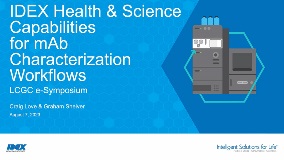

-
Extrusion, Product Design, and Testing Capabilities for Fluidic Tubing and Connections
Aug 20, 2024 by IDEX Health & ScienceFrom expertise with extremely small tolerances, real-time monitoring of computer data, and statistical processes, we ensure our experts ensure our fluidic connections meet the highest level of quality and margin of safety, so you can have peace of mind when using our fluidic tubing and connections.
Full story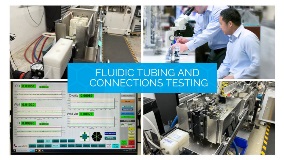
-
Accelerate Your Time to Market with Semrock Optical Filters
Jul 16, 2024 by IDEX Health & ScienceWatch our webinar for a step-by-step walk through on how to accelerate time to market using SearchLight™ spectral modeling tool, our extensive optical filter catalog, and by partnering with our team. This webinar is brought to you by Elizabeth Bernhardt, Ph.D., one of our senior application scientists at IDEX Health & Science.
Full story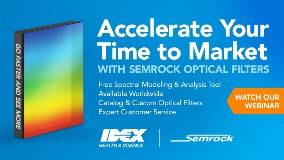
-
Make the Switch to Super Flangeless and BioTight® Peek Fittings
Jul 11, 2024 by IDEX Health & ScienceIf you are using flangeless fittings for your flat bottom fitting system, now is the time to up your fluidics game by switching to super flangeless or our new BioTight®. Learn why.
Full story
-
Step through the Spectrum with Nanopede™ Bandpass Optical Filters
Jun 27, 2024 by IDEX Health & ScienceSpectral flow cytometry requires filters covering the UV, visible, and NIR in discrete steps, which may lead to a desire to balance instrument cost and optical filter performance. IDEX Health & Science understands these needs, and we are proud to announce our latest Semrock bandpass optical filters: Nanopede™. These essential performance and cost-effective filters cover the near UV and visible spectrum in even (Flight 1) and odd (Flight 2) 20 nm Full-Width, Half-Max (FWHM) steps.
Full story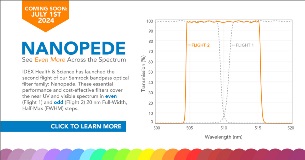
-
Super-Resolution Microscopy Cubes
Jun 10, 2024 by IDEX Health & ScienceSuper-resolution/TIRF Microscopy Cubes set the new standard for laser based microscopes. These cubes are optimized for mounting 1λ RWE 1mm thick super-resolution/TIRF laser dichroic beamsplitters. Maximize SNR and minimize artifacts in TIRF, Confocal, PALM, STORM, SIM, and other super-resolution techniques.
Full story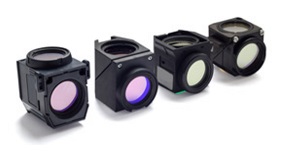
-
The Function of a Degasser in HPLC
Jun 3, 2024 by IDEX Health & ScienceWhat is the function of a degasser in HPLC? Degassers are used in High-Performance Liquid Chromatography (HPLC) separations to reduce dissolved air from the mobile phase solvent. Learn more about degassers in HPLC applications.
Full story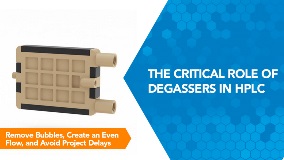
-
HPLC Fittings Guide
May 17, 2024 by IDEX Health & ScienceWhat is HPLC? HPLC is an acronym that stands for High-Performance Liquid Chromatography. It is an analytical process designed to separate, quantify, and analyze components of a chemical mixture. Learn how an HPLC system works and what fittings are used in this platform.
Full story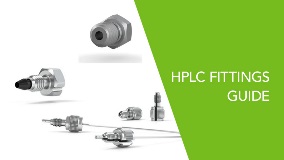
-
Diffusion Bonded Manifolds
May 15, 2024 by IDEX Health & ScienceIDEX Health & Science offers high-quality diffusion bonded manifolds. Material selections include Acrylic (PMMA) for cost effective manifolds, and Ultem™ (PEI).
Full story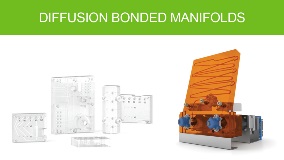
-
Introducing Our Bioinert UHPLC BioVersal™ Valve
May 2, 2024 by IDEX Health & ScienceIntroducing our Bioinert UHPLC BioVersal™ Valve—Our newest product offering in a full suite of bioinert components with metal-free flow paths. Learn how this 100% bio-inert valve can be customized to simplify your flow path and improve instrument data and accuracy.
Full story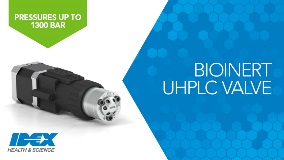
-
Fluidic Capabilities for mAb Characterization Workflows
Apr 26, 2024 by IDEX Health & ScienceThis video discusses creative approaches to simplify monoclonal antibody (mAb) quantitation and characterization by LC-MS.
Full story